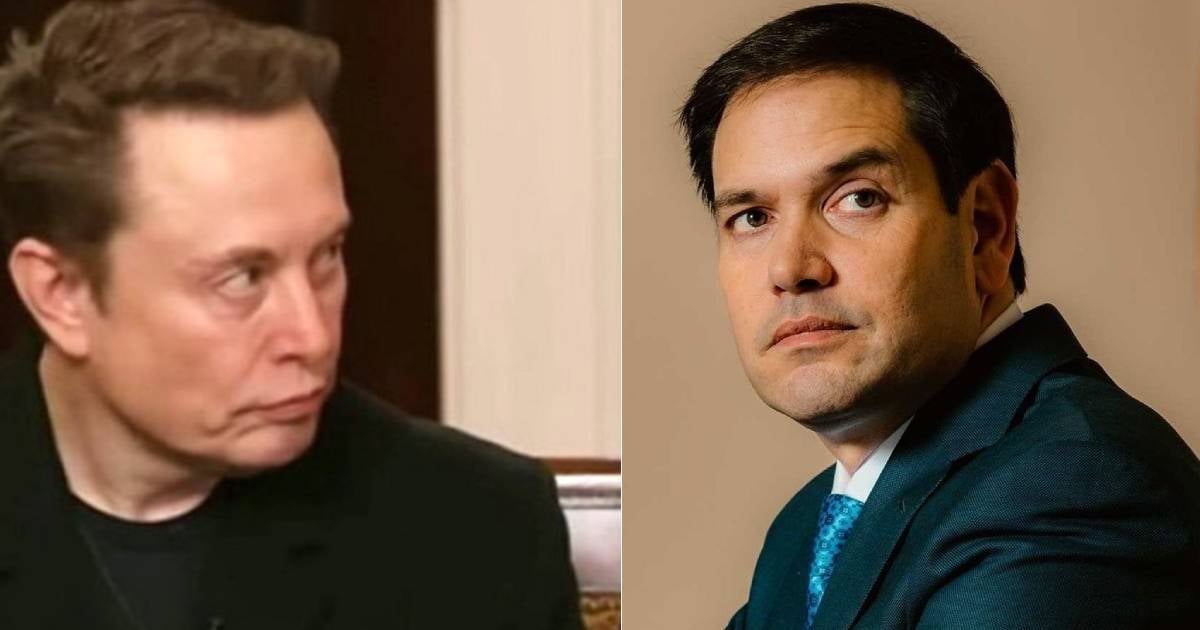President Donald Trump has dismissed recent speculations suggesting a rift between Elon Musk, the head of the White House Department of Government Efficiency (DOGE), and Secretary of State Marco Rubio. In a statement posted on his Truth Social platform, Trump emphasized that the two maintain a positive relationship, labeling any claims to the contrary as "fake news."
"Elon and Marco share a strong relationship. Any statement otherwise is fake news! DJT," Trump declared in his succinct message.
Rumors of a potential conflict between Musk and Rubio emerged after a White House cabinet meeting where Musk, the SpaceX founder, criticized Rubio for failing to implement substantial layoffs within his department, hinting that he had only terminated one DOGE official.
Rubio, visibly irritated, retorted sarcastically, questioning if Musk expected him to rehire over 1,500 State Department officials just to publicly dismiss them again. He defended his leadership, asserting that his team was executing an effective reorganization of the department.
During the meeting, President Trump intervened to mediate, acknowledging Rubio's responsibilities and travel schedule while reaffirming his support for Musk's strategy to cut costs and staff in the administration. Trump encouraged a more strategic approach to downsizing, suggesting the use of a "scalpel" rather than an "axe."
This confrontation is just one of several instances highlighting internal tensions within the presidential team, showcasing power struggles and ego clashes among its members. Despite the controversy, the White House has downplayed the incident, describing the meeting as a "productive" discussion.
Musk's growing influence within the administration and his radical methods for executing cuts have unsettled several cabinet members, indicating that the balance of power remains contested. Since its inception, DOGE has implemented significant measures, including mass layoffs of federal workers and the elimination of certain government agencies.
For instance, the United States Agency for International Development (USAID) has faced severe reductions. President Trump ordered a near-total freeze on foreign aid, leading to the dismissal or suspension of over 1,000 USAID employees and contractors. Subsequently, Musk announced plans to shut down USAID, calling it a "criminal organization" and "beyond repair."
Meanwhile, Marco Rubio declared himself the interim administrator of USAID, announcing its merger with the State Department, though the legality of these actions is disputed. By February 6, reports indicated that only 294 employees would remain out of more than 10,000, marking a significant reduction in the agency's workforce.
These actions have sparked controversy and criticism from federal employees and public administration experts, who question the legality and impact of these cuts on government efficiency. Additionally, legal challenges have been filed questioning DOGE's authority and decisions under Musk's leadership.
Despite the backlash, Musk defends the measures taken, arguing that the United States should not be governed by bureaucracy and that entire agencies must be eliminated to prevent their resurgence.
Frequently Asked Questions About Tensions in the White House Administration
What led to the rumors of tension between Elon Musk and Marco Rubio?
The rumors were sparked by a White House cabinet meeting where Elon Musk criticized Marco Rubio for not implementing significant layoffs in his department, leading to a sarcastic exchange between them.
How has the White House responded to the alleged tension?
The White House has attempted to downplay the incident, describing the meeting as a "productive" discussion and dismissing any rumors of tension as fake news.
What are the implications of the DOGE's actions under Elon Musk's leadership?
Under Musk's leadership, DOGE has implemented significant measures, such as mass layoffs and the elimination of government agencies, which have raised legal and efficiency concerns.
